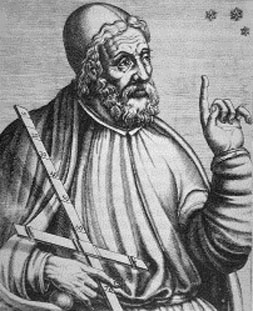Scott Locklin looks back admiringly at an ancient Greek who dabbled more originally, profoundly and variously than pretty much anyone else ever.
Εύδοξος ο Κνίδιος
It’s a modern conceit that we are the most sophisticated people who ever lived.
Much of what we know comes from a bunch of pederasts in ancient Magna Graecia, and most of that has been forgotten. The agglomeration of knowledge over billions of people and thousands of years has given us greater ease and power over nature than the Greeks had. But the Greeks in many ways remain our superiors as people, and they were in every measurable way our intellectual superiors. There was no other civilization we know of who remotely compared to what the Greeks accomplished. Not the Persians, the Chinese or the Japanese or even the Edwardian English (who probably came closest to the influence of the Greeks, if not their genius). I don’t know why Von Dainken talked about Aliens influencing the ancient Egyptians in his silly Chariots of the gods books. No pile of rocks can compare to even a minor work of Phidias.
A Greek whose ideas haunt me: Eudoxus of Cnidos. He was born around 408 BCE, son of Aischimes. Eudoxus was born poor. He walked miles every day to listen to Plato’s lectures. Eventually that cheesed him off (actually, I believe it was Plato’s lack of mathematical sophistication), and Eudoxus went his own way; ending up in Heliopolis where he learned Astronomy. Later in life he returned to Athens to rival Plato, and eventually he retired to Cnidos and was considered the greatest mathematician of his time.
Eudoxus is best known for his contribution to the theory of ratios to Book V of Euclid’s Elements in which he developed the idea of real numbers, which underlies much of mathematics today; in particular that which requires the floating point part of your computer. He also invented an early form of calculus, called the “method of exhaustion” -really, Leibniz and Newton didn’t do much beyond this which wasn’t notation. In fact, much of Euclid’s elements is just an exposition of Eudoxus work. Other achievements: he discovered the leap-year, invented a sundial and a lot of what we know about him was due to an epic poem. When was the last time any scientist or mathematician rated an epic poem? That’s how badass Eudoxus was.
Eudoxus was the first astrophysicist; his contributions in this regard are more or less how I first ran into him, via an idea called the Gutzwiller trace formula, which is an interesting mathematical object worth a blog entry or two on its own. Eudoxus developed a theory of orbital mechanics which is essentially how we do it today; it is perturbative in nature. In other words, his theory takes a rough answer, then adds terms to it to make it better. His theory is numerically very good. Variations on it were happily used for thousands of years; up to the time of Kepler. Eudoxus’ idea was really the first modern physical theory.
Eudoxus invented real numbers, orbital mechanics and a form of calculus, 2000 years before Newton. He also discovered the leap year, invented a sundial, described constellations, wrote epicurean philosophy, discovered many theorems in solid geometry, he is alleged to have been a pretty good interior designer; he wrote books of geography and sociology, meteorology, Egyptian theology and was revered as a wise lawgiver in his home town. His productive years were between 26 and 53, when he died. Compare him to the imagined smartest man who ever lived, Einstein, who started research when he was 21, and died at 76. Eudoxus accomplished much more in a shorter period of time. He did it before Alexander the Great; before the invention of the steam engine; before Rome became an empire; before the Great Wall of China was built. Eudoxus lived so long ago, he is at the bare edge of recorded history. He lived in a time which had more in common with myth and legend than with modern history, but his discoveries invented what we are.
“Willingly would I burn to death like Phaeton, were this the price for reaching the sun and learning its shape, its size and its substance.” -Eudoxus
Ancient Greek civilization produced at least many dozens and perhaps hundreds of men like this. How can we moderns hope to compare to the Greeks?












Thanks for the enlightening article Scott, always good to learn something completely new to me! You’ve got me wondering what ancient Greek interior design entailed…